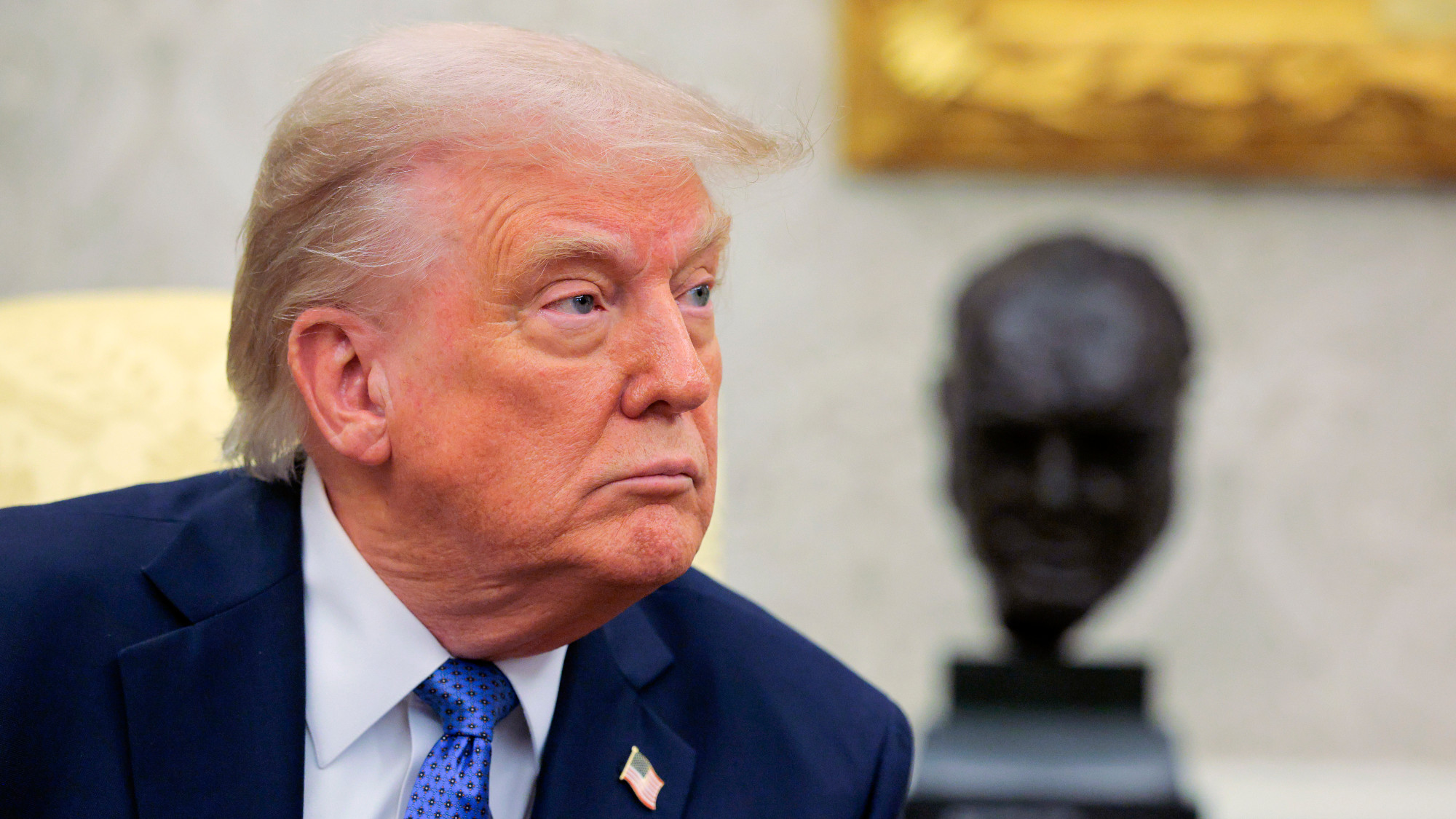Reining in Iran: Talks instead of bombs
Trump edges closer to a nuclear deal with Iran—but is it too similar to former President Barack Obama's pact?

A free daily email with the biggest news stories of the day – and the best features from TheWeek.com
You are now subscribed
Your newsletter sign-up was successful
President Trump is "well positioned to secure a lasting deal" with Iran on its nuclear program, said Ivo Daalder in Politico. Unfortunately, it may be "on Iran's terms." Since 2018, when Trump scrapped President Barack Obama's Iran nuclear deal, Tehran has been enriching uranium and now has a stockpile at 60 percent purity. At this point, it could jump to the 90 percent purity required for a bomb whenever it chooses, and that has alarmed Israel, which considers a nuclear Iran an existential threat. Israel was reportedly planning to bomb Iran's facilities, but Trump insisted on talks first, bombs second. The "carrots and sticks" approach has brought Iran to the negotiating table, and U.S. envoy Steve Witkoff has met twice with Iranian diplomats in the past two weeks. But whatever deal emerges is likely to be a near clone of Obama's pact, which Trump derided as "the worst deal in history." Critics of the original deal may again be left wanting "something more stringent."
A tougher agreement is still within reach, said Arash Azizi in The Atlantic. Iran is in a "weak, even humiliating position," with Israel having humbled Iranian proxy militias in Gaza, Syria, and Lebanon. Internal discontent over the ayatollahs' "political repression and economic mismanagement" has swelled, and voices favoring engagement with the U.S. are gaining strength. There's hope Iran could accept "real concessions" that create a "more enduring" check on its nuclear ambitions.
Don't count on it, said Bret Stephens in The New York Times. Iran "has been playing Western diplomats for fools for decades." The heart of the problem isn't the level of nuclear enrichment, but the Iranian regime, with its "raging anti-Americanism and antisemitism" and its "long record of supporting terrorism." Rather than the same old deal, Trump should offer "normalization for normalization." The U.S. would lift sanctions and allow unfettered trade to bring prosperity to Iranians, if in exchange Iran renounced nuclear weapons, terrorism, and repression and became "a normal country." To add to the pressure, the U.S. could give Israel the bombers it needs to wipe out Iran's facilities in case of a no. But outsourcing our military muscle to Israel would be "a profound strategic error," said Dan Perry in The Hill. It sends the message that Trump's White House, like Obama's, "lacks the will to enforce its own red lines." The ayatollahs must understand that if they try to stall, their "cataclysmic rule" will be ended. "That message must come from Washington, not Tel Aviv."
The Week
Escape your echo chamber. Get the facts behind the news, plus analysis from multiple perspectives.

Sign up for The Week's Free Newsletters
From our morning news briefing to a weekly Good News Newsletter, get the best of The Week delivered directly to your inbox.
From our morning news briefing to a weekly Good News Newsletter, get the best of The Week delivered directly to your inbox.
A free daily email with the biggest news stories of the day – and the best features from TheWeek.com
-
 6 of the world’s most accessible destinations
6 of the world’s most accessible destinationsThe Week Recommends Experience all of Berlin, Singapore and Sydney
-
 How the FCC’s ‘equal time’ rule works
How the FCC’s ‘equal time’ rule worksIn the Spotlight The law is at the heart of the Colbert-CBS conflict
-
 What is the endgame in the DHS shutdown?
What is the endgame in the DHS shutdown?Today’s Big Question Democrats want to rein in ICE’s immigration crackdown
-
 Witkoff and Kushner tackle Ukraine, Iran in Geneva
Witkoff and Kushner tackle Ukraine, Iran in GenevaSpeed Read Steve Witkoff and Jared Kushner held negotiations aimed at securing a nuclear deal with Iran and an end to Russia’s war in Ukraine
-
 Kurt Olsen: Trump’s ‘Stop the Steal’ lawyer playing a major White House role
Kurt Olsen: Trump’s ‘Stop the Steal’ lawyer playing a major White House roleIn the Spotlight Olsen reportedly has access to significant US intelligence
-
 Trump’s EPA kills legal basis for federal climate policy
Trump’s EPA kills legal basis for federal climate policySpeed Read The government’s authority to regulate several planet-warming pollutants has been repealed
-
 House votes to end Trump’s Canada tariffs
House votes to end Trump’s Canada tariffsSpeed Read Six Republicans joined with Democrats to repeal the president’s tariffs
-
 Bondi, Democrats clash over Epstein in hearing
Bondi, Democrats clash over Epstein in hearingSpeed Read Attorney General Pam Bondi ignored survivors of convicted sex offender Jeffrey Epstein and demanded that Democrats apologize to Trump
-
 ‘The mark’s significance is psychological, if that’
‘The mark’s significance is psychological, if that’Instant Opinion Opinion, comment and editorials of the day
-
 Judge blocks Trump suit for Michigan voter rolls
Judge blocks Trump suit for Michigan voter rollsSpeed Read A Trump-appointed federal judge rejected the administration’s demand for voters’ personal data
-
 US to send 200 troops to Nigeria to train army
US to send 200 troops to Nigeria to train armySpeed Read Trump has accused the West African government of failing to protect Christians from terrorist attacks